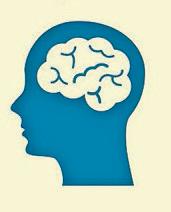HEALTH CARE DIRECTORY 2024
North Central Illinois Health
Care Providers and Services









Wearing eyeglasses is not strictly reserved for adults. In fact, many children wear eyeglasses, and they may need them for different reasons. The American Association for Pediatric Ophthalmology and Strabismus says children may benefit from glasses while their visual systems are still developing, within the first 12 years of life. Glasses can be important for the normal development of kids’ vision, including providing better vision; straightening crossed or misaligned eyes; protecting one eye that sees better when the other eye has poor vision; and strengthening a weak (lazy) eye. The University of Rochester Medical Center says a child may get his or her first pair of glasses as young as a few months of age, but health care providers who specialize in pediatric eye care say kids usually become nearsighted or farsighted

between the ages of six and 12. It’s recommended children have an eye screening before they enter school. In addition, the American Academy of Ophthalmology and the American Optometric Association recommends vision screening for all infants, preschoolers and school-aged children.

Dr.Lori Schultz, Dr.Dennis Farrell and Dr.Jarred Farrell

Doctors are in the business of keeping people healthy, and one of the best ways to do so is to help individuals avoid illnesses and diseases that can make them sick. Although few people relish the idea of needle jabs, immunizations (vaccines) remain an effective way to stay in good health.
The American Academy of Pediatrics says top disease experts work together throughout the year to update the recommended immunization schedules for children, adolescents and adults. Schedules are approved by the AAP, the Centers for Disease Control and Prevention and other health care organizations. Any recommended vaccines are based on ongoing reviews of the most recent scientific data for each immunization.
An immunization schedule offers a series
of vaccinations, including the timing of all doses, as recommended or required depending on one’s home country. Vaccines go through multiple phases of trials to ensure safety and efficacy. Following an immunization schedule is ideal for optimal health. Here are a few facts to consider, courtesy of HealthyChildren.org, a website managed by the AAP and the CDC.
• The timing of vaccines is carefully studied and recommended to work with the body’s immune system.
• People with chronic conditions or individuals on medications that weaken the immune system may need a different type of vaccine or a booster. A doctor can discuss the best approach in such situations.
• Many vaccines are administered in early childhood during infancy. Getting a child
vaccinated on time is the best way to protect him or her.
• There is no research to show that a child would be equally protected against diseases if shots are spread out differently or if a varied schedule is followed. Parents and caregivers often must trust that the professionals know best with these schedules.
• If a dose is missed or a child is behind schedule, that does not require starting all over. A doctor can be consulted and the next shot in a series can be scheduled as soon as possible.
• Adults receive far fewer vaccines than their younger counterparts. According to the CDC’s most recent vaccine schedule, these are some of the shots adults should discuss with their doctors.
- COVID-19 (one or more doses of updat-
ed 2023-2024 formula)
- Influenza (one dose annually)
- Respiratory Syncytial Virus (seasonal administration during pregnancy)
- Tetanus, diphtheria, pertussis (Td or Tdap booster every 10 years, unless pregnant, then one dose Tdap each pregnancy)
- Measles, mumps, rubella (one or two doses depending on indication if born in 1957 or later)
- Varicella (two doses if born in 1980 or later)
- Zoster recombinant (two doses at age 50)
Following an immunization schedule is one way to maintain personal health. Any questions or concerns about vaccines should be discussed with a primary care doctor or another trusted health professional.



The medical field is comprised of many professionals working in concert to keep patients healthy, which involves treating any conditions that arise. Individuals may be treated by various types of doctors in their lifetime, and each is an expert in his or her field. According to Medical News Today, most physicians are categorized as primary care or specialty care.
Navigating the health care system can be confusing. Recognition of the specialties of various types of doctors can make it easier to make it through that system.
• General practitioner: Also known as a family physician, or primary care doctor, these are the doctors patients are likely to encounter most often. They care for patients during routine checkups and
screening tests; provide immunizations; and manage ongoing medical conditions. GPs also may be internists, treating both common and complex illnesses.
• Pediatrician: Pediatricians specialize in the care of children from birth and up. Although there is no set age when patients will transition from a pediatrician to an adult doctor, Kids Health says the switch is typically made between the ages of 18 and 21.
• Geriatric medicine specialists: These doctors focus on treating elderly patients and the medical conditions that can develop as a person ages. Geriatric doctors work in private offices, nursing homes, assisted living facilities, hospitals, and some even make house calls.
• Endocrinologists: An endocrinologist is an expert in the study of the body’s hormones, says the Cleveland Clinic. They diagnose and treat many different conditions that affect the endocrine system, including diabetes, reproductive issues and thyroid conditions.
• Dermatologist: Skin, hair and nail conditions are handled by a dermatologist. Dermatologists routinely treat conditions like acne, moles, scarring, rashes, and more.
• Nephrologists: Individuals with kidney diseases as well as high blood pressure and fluid and mineral imbalances will likely see a nephrologist.
• Ophthalmologist: Although many conditions of the eye can be diagnosed and treated by optometrists, ophthalmologists are medical doctors who can treat every kind of eye condition. They also can oper-

ate on the eyes, according to WebMD.
• Oncologist: Oncologists specialize in the diagnosis and treatment of cancer. They have subspecialties in specific types of cancer, and also may serve as radiation oncologists, who provide radiation cancer treatments.
• Otolaryngologists: Commonly referred to as ear, nose and throat doctors, these professionals treat diseases in these areas of the body. They also treat conditions that affect the neck and respiratory system.
• Pulmonologists: Those with conditions related to breathing issues, such as pneumonia, asthma, emphysema, and lung cancer, can seek out pulmonologists.
These are just some of the many different types of doctors people may visit in their lifetimes.


Many times, obvious symptoms tell us when something is wrong with our health. But other times, we may feel fine and not realize there’s an underlying problem.
Keep up on your health by scheduling an appointment today! osfhealthcare.org/primary
Your life – our Mission
Greenfield Retirement Home
508 Park Avenue East, Princeton, IL (815) 872-2261 www.greenfieldhome.org
Specialty: Licensed Shelter Care, 24 Hr. Nursing Staff, Medication Distribution, Licensed Kitchen, Laundry & Housekeeping, Over 100 Years of Quality Senior Care

Farrell Chiropractic 682 E. Peru Street, Princeton, IL (815) 875-4408
Specialty: Chiropractic, Gonstead Clinic Length of Practice: 48 years
SM-PR2173559
Lori A. Schultz, D.C.
Farrell Chiropractic 682 E. Peru Street, Princeton, IL (815) 875-4408
Specialty: Chiropractic, Gonstead Clinic Length of Practice: 39 years
SM-PR2173556














Medical professionals and researchers tout the benefits of cardiovascular exercise, often referred to as “cardio,” which various organizations note should be incorporated into any well-rounded fitness regimen. The Mayo Clinic notes the many benefits of cardio, which include increased stamina, a stronger immune system, a lower risk for chronic conditions like diabetes and heart disease, and improved mood.
Cardiovascular workouts may not seem as intimidating as strength-training exercises that require heavy lifting, but they can still prove challenging. That’s particularly so for individuals who may feel as though their endurance levels could use some work. The Cleveland Clinic notes that cardiovascular endurance refers to how well the heart and lungs can supply the oxygen a body needs to exercise at medium- to high-intensity. That oxygen is an energy source the body utilizes to fuel cells in the tissues and muscles, which illustrates how vital cardiovascular endurance can be in relation to performance. With that in mind, individuals can consider these activities as they seek to improve their cardiovascular endurance.
• Sprint interval training (SIT): A 2107 study published in the journal Sports Medicine noted that research in the preceding decade found that sprint interval training (SIT) provided health benefits similar to or
greater than those credited to moderateintensity continuous training (MICT). SIT is an umbrella term that can be used to describe various exercises, each of which involves sprinting for short bursts followed by several minutes of recovery time.
• High-intensity interval training (HIIT):
The Harvard T.H. Chan School of Public Health notes that HIIT incorporates numerous rounds of exercises that alternate between several minutes of high-intensity movements and shorter periods of lowintensity movements. The goal of the highintensity portions is to increase the heart rate to at least 80 percent of its maximum rate.
• Additional exercises: SIT and HIIT are not the only exercises that can help individuals improve their cardiovascular endurance. The Cleveland Clinic notes that swimming, cycling, dancing, jogging, walking, jumping rope, and climbing stairs are some additional activities that can strengthen the ability of the heart and lungs to supply oxygen to the body.
People of all ages can work to improve their cardiovascular endurance, though the Cleveland Clinic recommends individuals first consult their health care provider to devise a strategy that will be both safe and effective. More information about cardiovascular endurance can be found at clevelandclinic.org.
Transportation • Senior Center Information/Assistance • Outreach
Grandparent Raising Grandchildren Assistance
Assistive Devices • Congregate Meals

Options Counseling • Ship/Shap Certified Staff 815-879-3981 • 800-544-5955 bcseniorcenter.com 16 West Marion Street, Princeton, IL 61356




Just like with your muscles, the neurons that help us hear are “use it or lose it!” You will get better benefit from your hearing aids if you get them sooner. This way, your brain won’t forget how to process sounds.
Treating you hearing loss has correlations with positive brain functions including memory health and attention.
Untreated hearing loss is correlated with higher rates of depression , anxiety, social isolation and withdrawal, cognitive decline, and overall lower quality of life.


• Spacious 2 Bedroom Floor Plans
• Full-sized Kitchen
• Attached Garage
• Maintenance Free Exterior
• Grounds Maintenance

• 24 Hour Assistance
• Elegant Dining
• Health Monitoring
• Laundry & Housekeeping Services
• Medication Reminders
• Spacious Living Area
• Premier Post-Acute Provider
• Medicare Certified
• Caring & Dedicated Staff
• State of the Art Therapy
• Experienced Therapist
• Personalized Recovery Plan
• Stimulating Memory
• Enhancing Socialization
• Remain Active
• Remain Engaged











